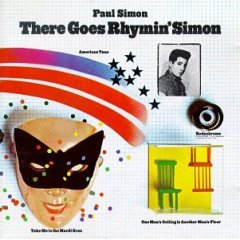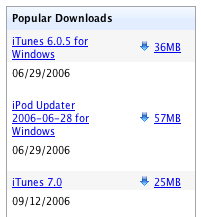WATCHING:
 United 93Paul Greengrass, Director
United 93Paul Greengrass, Director
I almost passed on watching this movie, simply because the subject matter – a fictionalized account of the 9/11 hijacking that crashed due to passenger intervention – seemed to recent and real to be anything but exploitive or painful.
But I watched, and – while painful – it was very well done and extremely powerful, and not at all in an over the top way.
The use of no-name actors was the key, to me: If one of the stewardesses was Julia Roberts or a passenger was Al Pacino, it would have broken that illusion of something terrible happening to real people.
Not a comfortable movie, but very well done.
All movies
Guess what? I don’t know how to save social security – and, if I did – why would I tell you (gentle reader)? However, hear me out for some insights.
I guess I just had an epiphany recently when both Ford and General Motors posted dire financial news. Lots of articles about the fall of two of the Big 3 American automakers (the third, Chrysler, is now part German…), but the one fact that stuck with me is the following: Germany/Sweden/Japan can better compete in the auto market because those countries of some degree of a national health plan.
The U.S. doesn’t.
Let’s leave aside the whole issue of medical litigation in the U.S., and just agree that – in general – health care costs have skyrocketed in the U.S. over the past decade or two, and employeers with huge labor forces – especially a largly blue-collar workforce – are hurting keeping up with their part of these premiums. The workers are affected in a similar manner, so there is pressure from the unions/employees etc. to raise salaries to help workers pay for their portion.
Etc etc…….
Not so in countries with national health care.
So what the hell does this have to do with social security?
Well, social security is basically on the road to bankruptcy. If current trends hold, just about the time I’m due to retire, I won’t be able to collect.
All gone…
This is basically true for all entitlements: welfare, medicare/medicaid, social security.
And entitlements are a huge portion of the federal budget. Overwhelmingly large.
Yes, we spend a lot on national defense (20%), but more on social security – and if you add all entitlements together, you get a vast majority of federal outlays:
- Social Security – 22%
- Income Security (various welfare programs) – 14%
- Medicare – 12%
- Health (mainly CDC and security issues, but some entitlement programs) – 10%
(Fiscal Year 2005 figures)
OK, so we spend a lot on entitlements, but let’s take a look at some of the reasons we have to shell out these entitlements:
- Unemployment
- Securing – assuming – pensions for companies going out of business
- Foodstamps for those unable to gain work
And so on.
Basically, if everyone was able to work, entitlements pay-ins would increase and payouts would drop (perfect case scenario, obviously – there will always be those gaming the system in one way or another). We still might have a crunch, but it would be more manageable.
To me, however, the biggest change we can make to this country is to have some degree of national healthcare. Perhaps make it portable – there can be competition for which program you select, much as there is competion for the bank you select.
But when I change a job, I just fill out one form and tell the new employer where to deposit my check. I still pay the same checking fees at my bank if I work at IBM or the local 7-11. I don’t have to change from checking/savings to checking only and so on.
Why can’t I just tell my new employer where to send my health insurance co-pay (if necessary) or have it none of the new employer’s business (I may pay all, which would be a small fraction of today’s total)?
I don’t have to change my bank or bank program when I change jobs, so why should I have to change my doctor? Or dentist? Or level of coverage? Isn’t that sorta absurd? Isn’t that a lot of paperwork/processing/postage for nothing?
This’ll never happen because it cuts out a lot of powerful middlemen (health insurance brokers and, to some degree, insurers) with lots of PAC money, but it might just have to come to this. It’ll keep costs down, which will make it easier for those employers to keep you on its payrolls. Less unemployement, greater productivity, less entitlement outlay for the federal and local governments, and greater payments into those programs (if I’m unemployed, I’m not paying into Social Security…).
I have not presented this well, and it’s just starting to gel in my mind, but here is the bottom line of what I’m thinking: Fix health care, and you’ll have made an enormous stride toward fixing Social Security.
And improved the life and finances of the care-givers (hospitals, doctors) and the care-receivers (patient).
But it takes money away from insurance companies and insurance brokers. That’s the battle.
Rather, one of the many battles.
 I’ve always liked Paul Simon (and Garfunkel); I’m (barely) too young to have appreciated them when they first came out, but I heard – but didn’t fully understand – the music when it first came out. Took a few years to understand it; but Simon & Garfunkel songs were part of my youth.
I’ve always liked Paul Simon (and Garfunkel); I’m (barely) too young to have appreciated them when they first came out, but I heard – but didn’t fully understand – the music when it first came out. Took a few years to understand it; but Simon & Garfunkel songs were part of my youth.
 As I have
As I have  The Dish
The Dish United 93
United 93